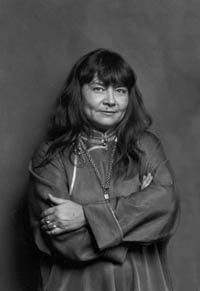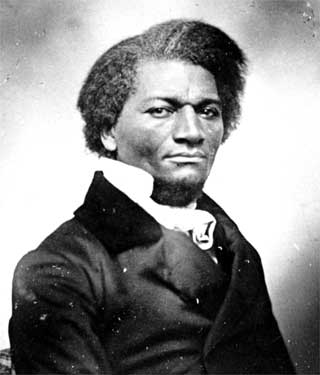Fall 2010 English 343


American Literature Survey
oral beginnings
to 1865
T/Th 12:30 - 1:45 Niccol 006
|
Fall 2010 English 343
American Literature Survey T/Th 12:30 - 1:45 Niccol 006 |
|
captivity narrative: A uniquely American literary genre, the captivity narrative recounts the experience of a white European or an American, during his or (more usually) her captivity and eventual release from hostile enemy captors (generally Native Americans). Enormously popular since their inception in the seventeenth century, captivity narratives influenced the development of both autobiographical writings and the novel in America. covenant theology: The Puritans believed that they had formed a "covenant," or contract with God. Like the Old Testament Hebrews, they felt themselves to be a "chosen nation," the people through whom God would fulfill his divine plan on earth. Their covenant, however, was not the same as the Old Testament covenant God had formed with the Israelites. The coming of Christ had changed the terms of the contract, enabling them to live under a "covenant of grace." Right behavior would follow their acceptance of and faith in the covenant. On an individual level, Puritans agonized over the status of their covenant with God, but as a group they were more confident. Having entered into voluntary church covenants, and thus into a kind of national covenant with God, they were assured of the centrality of their role in God's cosmic plan. election: The Puritan belief that some individuals were predestined by God to be saved and taken to heaven while other individuals were doomed to hell. One's status as a member of the elect did not necessarily correlate with good works or moral behavior on earth, for God had extended a "covenant of grace" to his chosen people that did not have to be earned, only accepted with faith. Despite the apparent ease with which a believer could attain everlasting salvation, Puritans in practice agonized over the state of their souls, living in constant fear of damnation and scrutinizing their own feelings and behavior for indications of whether or not God had judged them worthy. inner light: Quaker concept of a manifestation of divine love that dwells within and thus unites all humans. Also called the "spirit," or the "Christ within," the inner light could be experienced without the mediation of a minister or the Bible and was thus powerfully egalitarian and radical in its implications. Quakers viewed the inner light as more important to spiritual development than the study of scripture. jeremiad: A form usually associated with second generation Puritan sermons but which is also relevant to many other kinds of Puritan writing (Mary Rowlandson's Narrative is often cited as an example of a jeremiad). Drawing from the Old Testament books of Jeremiah, and Isaiah, jeremiads lament the spiritual and moral decline of a community and interpret recent misfortunes as God's just punishment for that decline. But at the same time that jeremiads bemoan their communities' fall from grace, they also read the misfortunes and punishments that result from that fall as paradoxical proofs of God's love and of the group's status as his "chosen people." According to jeremidic logic, God would not bother chastising or testing people he did not view as special or important to his divine plan. plain style: A mode of expression characterized by its clarity, accessibility, straightforwardness, simplicity, and lack of ornamentation. In early America, the plain-style aesthetic had broad cultural relevance, shaping the language of prose and poetry, the design of furniture and buildings, and the style of painting and other visual arts. Rejecting ornamental flourishes and superfluous decoration as sinful vanity, plain stylists worked to glorify God in their productions rather than to show off their own artistry or claim any renown for themselves. This aesthetic appealed to both Quakers and Puritans. Puritans, Separatist and non-separating: All Puritans dreamed of creating a purified religious community, free from the hierarchies and worldly rituals they felt contaminated the established Church of England. While non-separating Puritans hoped that they could reform the church from within, the Separatists believed that they needed to break from the Church of England entirely. The Separatists represented a minority among Puritans, and they experienced even greater persecution in England than non-separating did. In America, the Plymouth colony led by William Bradford was Separatist while the Massachusetts Bay colony led by John Winthrop was non-separating. typology: A Puritan method of both reading scripture and using it to understand the significance of historical and current events. In its strictest sense, typology refers to the practice of explicating signs in the Old Testament as foreshadowing events, personages, ceremonies, and objects in the New Testament. According to typological logic, Old Testament signs, or "types," prefigure their fulfillment of "antitype" in Christ. Applied more broadly, typology enabled Puritans to read biblical types as forecasting not just the events of the New Testament but also their own historical situation and experiences. In this way, individual Puritans could make sense of their own spiritual struggles and achievements by identifying with biblical personages like Adam, Noah, or Job. But this broad understanding of typology was not restricted to individual typing: the Puritans also interpreted their group identity as the fulfillment of Old Testament prophecy, identifying their community as the "New Israel." weaned affections: this Puritan theological doctrine held that individuals must learn to wean themselves from earthly attachments and make spiritual matters their priority. Inappropriate earthly attachments included material possessions such as one's home, furniture, clothing, or valuables. The doctrine of weaned affections could also proscribe things that we do not usually think of as incompatible with spirituality, such as a love of natural beauty, or a dedication to secular learning, or even an intense devotion to one's spouse, children, or grandchildren. According to orthodox Puritan theology, anything tied to this world—even relationships with family members—should be secondary to God. |